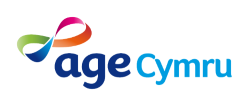Phone scams
Phone scams are a common way for criminals to con people out of money using various tricks to get your personal or financial information. Be aware of some of the most common phone scams and find out what you can do to stay safe.
What is a cold call?
Cold calls are phone calls from companies trying to sell you something, even though they have had no business with you previously. Cold calls aren’t usually illegal and don’t necessarily count as a scam although they can be annoying, frustrating and even frightening.
What are some common types of phone scams?
It can be hard to tell the difference between a scam and cold calling. However, it's good to know some of the typical tricks that scammers use so you can be prepared if you ever get a call like these.
Coronavirus scams
During this worrying time, you may receive an email, text or Whatsapp message about the Coronavirus (COVID-19) - do not click on any attachment or link, especially if it asks you for personal information (bank details, date of birth etc).
If you think you have been the victim of a scam, then speak to your bank immedately and report any fraud to Action Fraud on 0300 123 2040.
Bank scams
This is a call from someone claiming to be from your bank telling you there’s a problem with your card or account. They may ask for your account and card details, including your PIN number, and even offer to send a courier to collect your card from you so they can resolve the problem. They may also advise transferring your money to a ‘safe account’ to protect it, which can lead to loss of money.
The caller will often sound professional and try to convince you that your card has been cloned or that your money is at risk. This is a common scam and your bank would never ask you to do this.
Computer repair scams
A scammer may call you claiming to be from the helpdesk of a well-known IT firm, such as Microsoft. They’ll tell you that your computer has a virus and will charge you to upload ‘anti-virus software’. This turns out to be spyware, which is used to get your personal details. Legitimate IT companies don’t contact customers this way.
Read our section about staying safe online for more tips and advice.
Compensation calls
This is a call from a company asking about a car accident you’ve had and offering you compensation. Some of these could be genuine companies looking for business but others are scammers. Don’t engage in these calls. If you’ve had an accident, call your own insurance company on the phone number provided on your policy.
HMRC scams
You may get a call from someone claiming to be from HMRC saying there is an issue with your tax refund or an unpaid tax bill. They may leave a message and ask you to call back. Again, don’t be fooled by this. HMRC would never contact you this way and would never ask you to reveal personal financial information such as your bank account details.
Number spoofing
Scammers now have the technology to mimic an official telephone number so it comes up on your caller ID display (if you have one on your phone). This can trick you into thinking the caller is really from a legitimate organisation, such as a bank or utility company. If you’re in any doubt, hang up and call the organisation directly. If possible, call them from a different phone as scammers can keep the phone line open, so that even if you hang up and call the organisation directly, the line may still be connected to the scammer. If it’s not possible to use another phone then wait for at least 10 minutes before you call.
Pensions and investment scams
This is a call about an 'unmissable' investment opportunity, or offering you the opportunity to access your pension cash earlier.
See our sections on pension scams and investment scams for more information about these types of scams.
‘Anti-scam’ scams
This is a call from someone claiming to be from a charity supporting scam victims, a company selling anti-scam technology, or from someone demanding money to renew your Telephone Preference Service registration, which is actually free. Be alert to all of these.
Check a charity’s registration with the Charity Commission to find out if they’re genuine
How can I avoid phone scams and cold calls?
You can block or prevent some cold calls. Try these simple things:
- Register with the Telephone Preference Service – it's free and it allows you to opt out of any unsolicited live telesales calls. This should reduce the number of cold calls you receive but may not block scammers.
- Talk to your phone provider to see what other privacy services and call-blocking services are available, although you may need to pay for some of these services.
- If you have a smartphone, you can use the settings on the phone to block unwanted numbers. If you’re not sure how to do this, you could visit your local mobile phone shop for assistance.
- There are products to block some calls. Some local councils provide call blockers through their trading standards teams.
What should I do if I’ve been a victim of a phone scam?
Scammers are constantly finding new ways to trick people and phone scams are changing all the time. If you’ve been the victim of a scam don’t be embarrassed to report it. It can happen to anyone of any age. Report the scam to the police and also contact Action Fraud. The information you give to Action Fraud can help track down the scammer.
For more information call Age Cymru Advice on 0300 303 44 98
